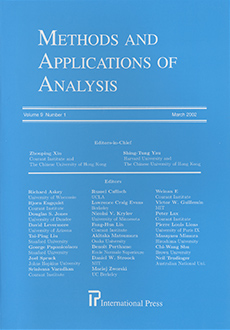Abstract
This paper has two major objectives. The first objective is to give a new, natural extension of the classical calculus of variations to a stochastic setting. Most significantly, it appears that this is the first time in the literature that a random objective functional is used rather than its mean. This is accomplished by using an appropriate class of variations.
Our second major objective is to give an efficient method of solution for these problems. To do this we derive the Euler equation in this setting which is the primary necessary condition for a critical point or extremal solution. We also derive transversality and corner conditions. These results, which are the three basic necessary conditions for an extremal, are sufficient to construct closed form solutions, when they exist. Our results hold for $n \ge 1$ dependent variables.
Of particular interest are several example problems. They illustrate random objective functionals that are functions of a Brownian path, pathwise extremals of these functionals, and the use of necessary conditions to find solutions in closed form. We also illustrate that our theory can generalize the usual stochastic control theory by considering individual paths and not the mean value of the objective functional.
Finally, these results illustrate steps towards a complete stochastic variational theory for random objective functionals by extending deterministic ideas of the first author. The three necessary conditions of this paper allow a general stochastic control theory with general equality and inequality constraints.
Citation
John Gregory. H. R. Hughes. "A New Theory and the Efficient Methods of Solution of Strong, Pathwise, Stochastic Variational Problems." Methods Appl. Anal. 11 (3) 303 - 316, September 2004.
Information





